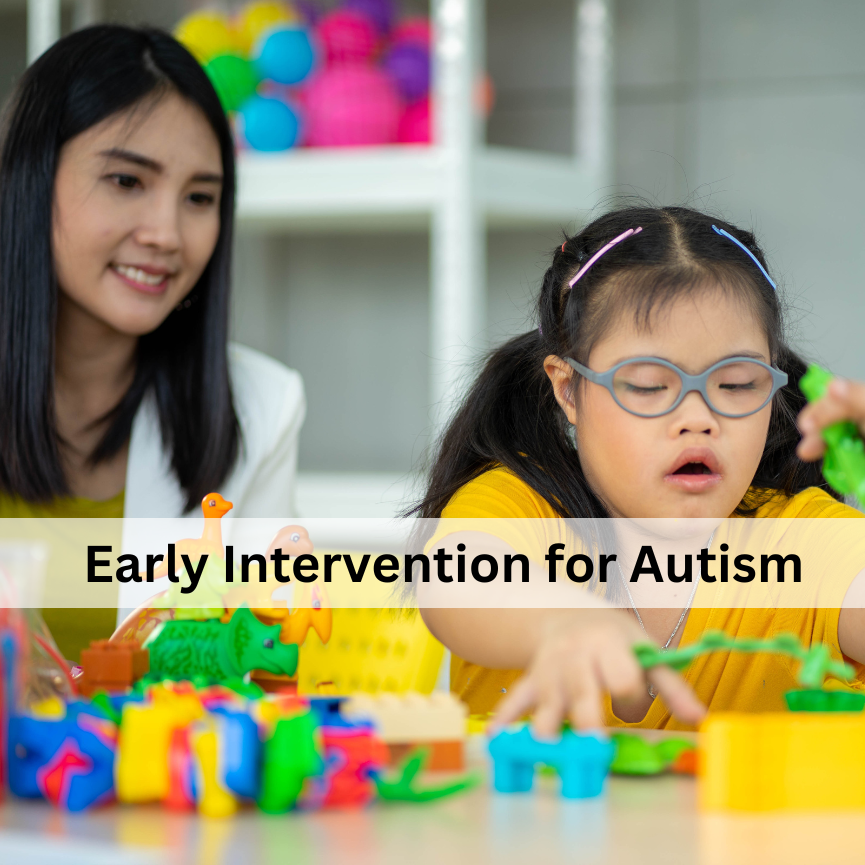
- May 09, 2024
- 481 Views
- 0 Comments
The Crucial Role of Early Intervention for Children with Autism
Early intervention plays a pivotal role in the lives of children with autism, offering them the best possible chance for positive developmental outcomes. Autism Spectrum Disorder (ASD) is a neurodevelopmental condition that affects communication, social interaction, and behavior. By identifying and addressing the challenges associated with autism at an early stage, we can make a significant difference in a child's life, fostering their overall growth and facilitating a smoother transition into adulthood. In this article, we will explore the importance of early intervention and its profound impact on children with autism.
Early intervention procedure
Early intervention procedures for autism involve specialized services and strategies to support the development of children diagnosed with autism spectrum disorder (ASD). Below are some commonly used interventions:
- Applied Behavior Analysis (ABA): Analyzing and modifying behavior through positive reinforcement to enhance communication, social skills, and daily living abilities.
- Speech and Language Therapy: Improving communication skills, including vocabulary, sentence construction, and non-verbal communication methods.
- Occupational Therapy: Supporting life skills, sensory processing, fine motor tasks, play skills, and promoting independence.
- Social Skills Training: Teaching social communication, perspective-taking, understanding emotions, and relationship-building.
- Early Start Denver Model (ESDM): Play-based intervention for children aged 12 months to 5 years, focusing on social communication, imitation, cognitive skills, and early learning.
- Parent-Mediated Interventions: Providing parents with education, training, and support to promote their child's development at home and beyond therapy sessions.
- Structured Teaching Approaches: Utilizing visual supports, routines, and work systems to enhance comprehension, organization, and independence.
It's essential to adapt early intervention strategies to the particular requirements, assets, and objectives of each kid. For the purpose of creating complete programs for kids with autism, a multidisciplinary team composed of behavior analyzers, speech therapists, occupational therapists, and psychologists typically works together.
Early Identification:
Early intervention begins with early identification. By recognizing the signs of autism in young children, healthcare professionals, educators, and parents can initiate appropriate support and interventions at the earliest opportunity. Common signs include delayed speech, repetitive behaviors, limited eye contact, and difficulties with social interactions. Early identification allows professionals to tailor interventions to meet the specific needs of each child, providing them with the best possible outcomes.
Optimal Brain Development:
During the early years of a child's life, the brain undergoes rapid development. Early intervention capitalizes on this critical period by stimulating brain growth and enhancing neural connections. By engaging children in targeted interventions, such as speech therapy, occupational therapy, and applied behavior analysis (ABA), we can optimize their brain development and promote the acquisition of essential skills. These interventions focus on enhancing communication, social interaction, emotional regulation, and daily living skills, empowering children with autism to reach their full potential.
Addressing Core Challenges:
Children with autism often face core challenges that impact their daily lives. Early intervention aims to address these challenges proactively, helping children overcome barriers and develop adaptive strategies. By providing structured learning environments, teaching social skills, and employing behavioral interventions, early intervention programs equip children with the tools they need to navigate social situations, manage their behaviors, and cope with sensory sensitivities. These interventions not only enhance their immediate functioning but also lay a strong foundation for long-term success.
Promoting Independence:
The ultimate goal of early intervention is to empower children with autism to lead fulfilling and independent lives. By intervening early, we can equip them with the necessary skills to become active participants in their communities. Early intervention programs often incorporate family involvement, promoting parent education and support. Parents and caregivers learn strategies to enhance their child's development and extend the impact of intervention beyond therapy sessions. With the right support and guidance, children with autism can develop self-care skills, academic abilities, and social competencies, enabling them to thrive both in school and in their future endeavors.
Long-Term Cost Savings:
Investing in early intervention for children with autism is not only beneficial from a developmental standpoint but also economically advantageous. Studies consistently demonstrate that early intervention leads to substantial long-term cost savings. By providing appropriate support and interventions early on, we can reduce the need for more intensive services later in life. Early intervention mitigates the potential long-term impact of autism on education, employment, and healthcare systems, making it a cost-effective strategy that benefits individuals, families, and society as a whole.
Early intervention represents a crucial window of opportunity for children with autism. By identifying and addressing the unique challenges they face during their early years, we can optimize their development, promote independence, and enhance their long-term outcomes. Investing in early intervention not only positively impacts individual lives but also yields economic benefits for society. By recognizing the importance of early intervention, we can provide children with autism the best possible start in life and empower them to fulfill their potential.



Post Your Comment